
Opinions
14:58, 23-Sep-2017
Opinion: The 2017 Bundeswahl: German experts offer insights
By George N. Tzogopoulos from China.org.cn
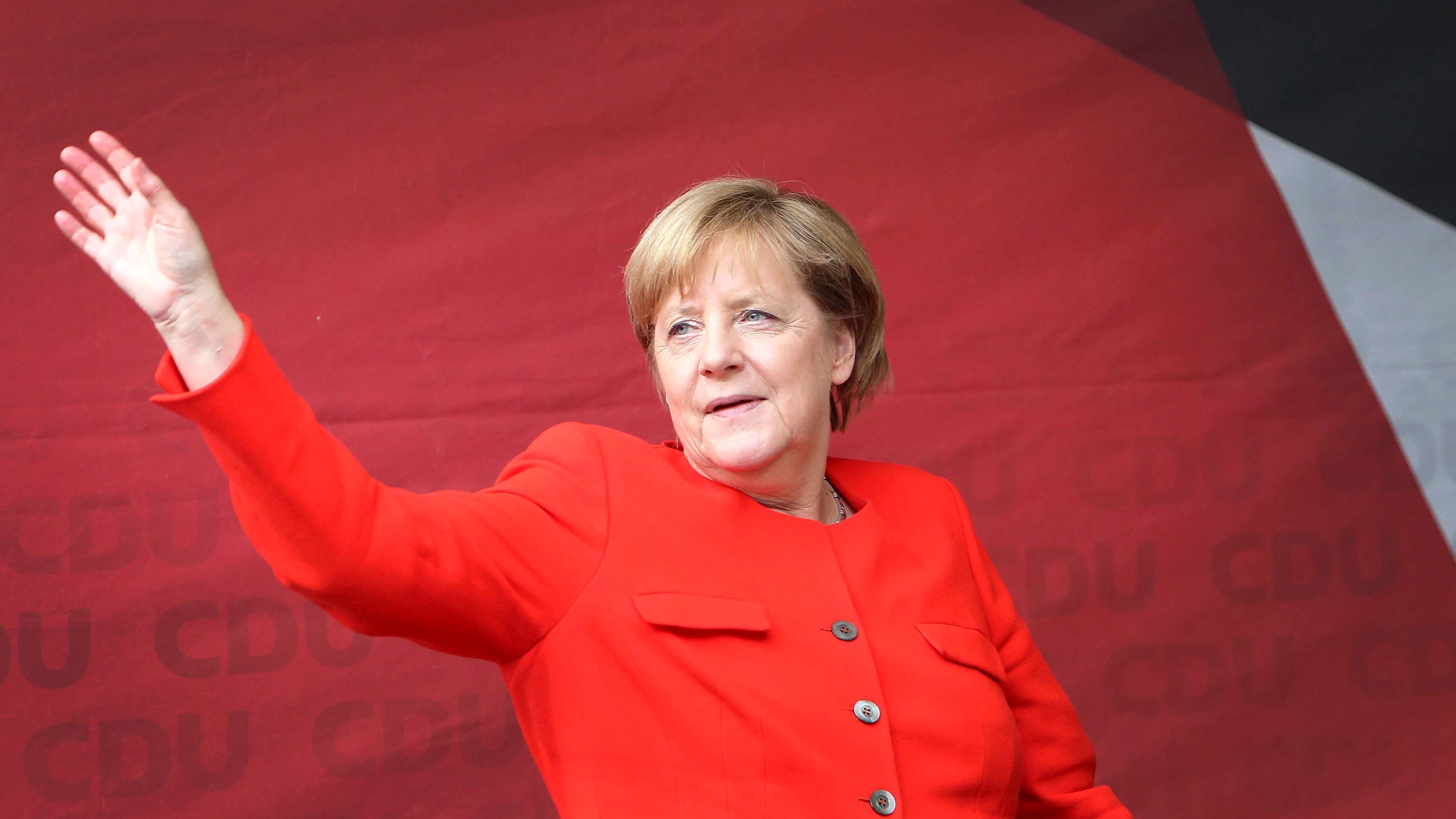
At the beginning of 2017, almost all Europeans who believed in further integration saw the year as critical for the future of the EU. After the shock of Brexit and the victory of Donald Trump in the U.S., elections in the Netherlands and France would either push the European project forward or cause new internal crises with unpredictable consequences.
The dominance of pro-EU forces in both countries buried the various nightmare scenarios. This Sunday, it is the turn of Germans to go to the polls and give a fresh impulse to European integration.
Chancellor Angela Merkel is expected to win a fourth consecutive term. Such continuity will be a triumph and certainly an unusual phenomenon for Europe under current circumstances.
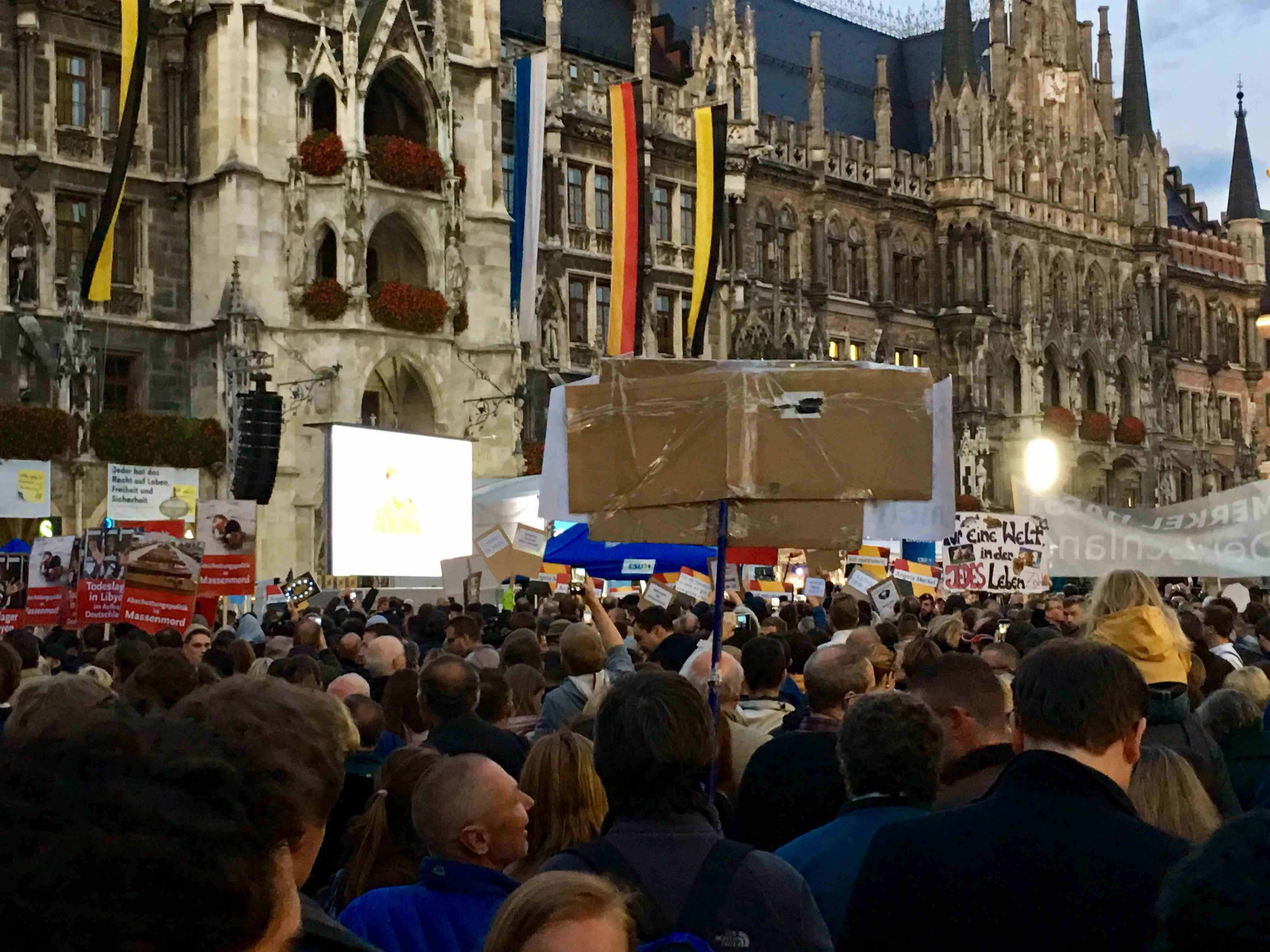
Crowds gather in central Munich's Marianplatz to hear the final campaign speech from German Chancellor Angela Merkel ahead of Sunday's federal elections. /CGTN Photo
Crowds gather in central Munich's Marianplatz to hear the final campaign speech from German Chancellor Angela Merkel ahead of Sunday's federal elections. /CGTN Photo
Yet, what is Merkel's secret of success? "She can guarantee stability in turbulent times," suggests Julian Rappold, a political analyst at the European Policy Centre (EPC). From the perspective of many Germans, it means undoubtedly avoiding entering unchartered waters like the U.K. She knows the way and has proved that during 12 years of power.
Other German scholars elaborate on her modest but persuading profile. The head of the Program of International Relations at the Berlin Progressive Center (DPZ), Philipp Sälhoff, explains that, while she is not keen on media or social media exposure, "she knows how to lead from behind without being loud."
The economic results of her governance are evident, although she initially only continued the reforms of her predecessor and brought nothing new. This leaves her main political opponent, Social Democratic Party (SPD) leader Martin Schulz, without any serious alternative agenda to offer.
Frankfurter Allgemeine Zeitung (FAZ) journalist Tobias Piller suggests that "to talk about the need for social justice in a country having a record employment rate could hardly be attractive."
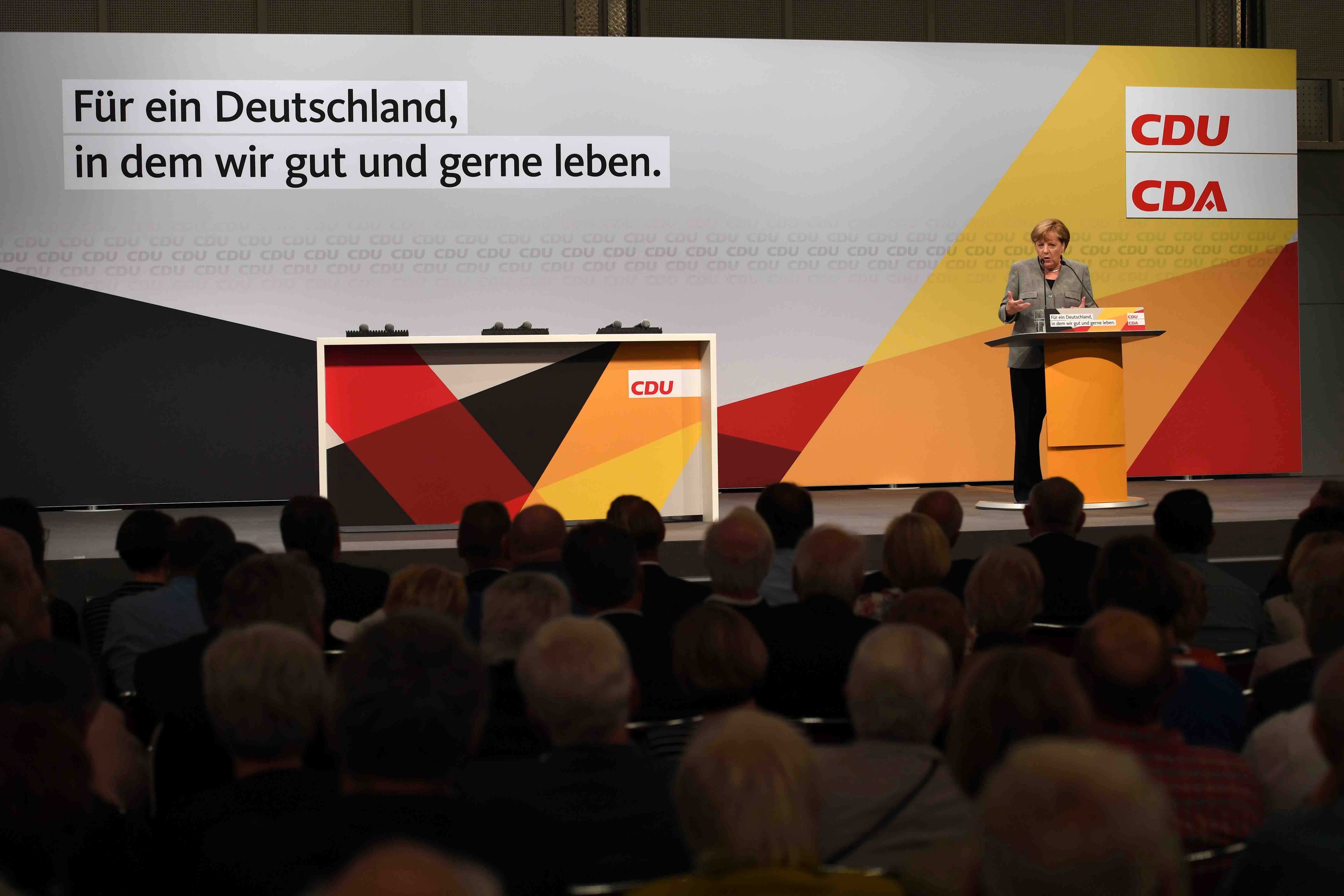
Angela Merkel gives a speech during an election campaign event in Dortmund on August 12, 2017. /AFP Photo
Angela Merkel gives a speech during an election campaign event in Dortmund on August 12, 2017. /AFP Photo
In spite of their projected victory in all opinion polls, the Christian Democratic Party (CDU) of Merkel and its sister party in Bavaria, the Christian Social Union (CSU), will be looking for a coalition partner after the Sunday election.
The prolongation of a grand coalition with the SPD should not be excluded; however, it might be an anathema to the Social Democrats, who will see their popularity further decrease while staying in power. So, the CDU and CSU will possibly cooperate with the Liberals (FDP) following the model of the 2009-2013 period. Should a majority prove elusive, the coalition will also seek to include the Greens, and will be named "Jamaica" from the colors of each party, black, yellow and green.
The day after will be difficult but not as tricky and uncertain as it was four years ago. Berlin is gradually changing its agenda for Europe. The post-crisis management era has already begun. The Greek crisis has not finished, but is certainly under control; the refugee crisis is being dealt with in a relatively efficient way; Brexit causes no panic and Trump has rather pushed Europe towards acting more united.
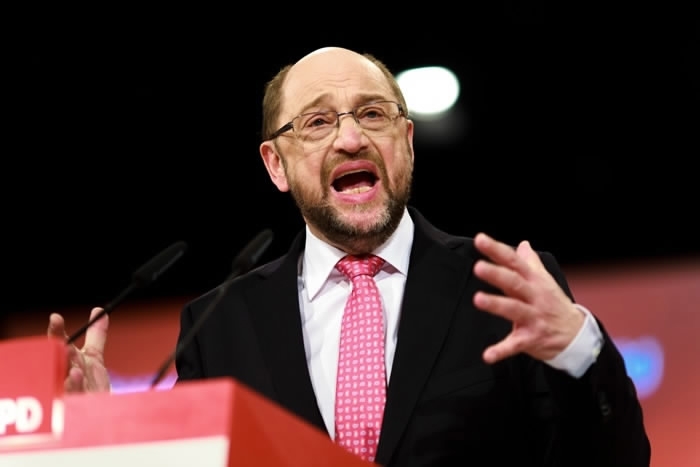
Martin Schulz, the SPD's top candidate for Germany's 2017 federal election, addresses the audience prior his election at the SPD Federal Party Congress in Berlin, Germany on March 19, 2017. /CFP Photo
Martin Schulz, the SPD's top candidate for Germany's 2017 federal election, addresses the audience prior his election at the SPD Federal Party Congress in Berlin, Germany on March 19, 2017. /CFP Photo
Although the nature of the new German coalition and the persons undertaking specific portfolios will define future developments, Julian Rappold believes some optimism on strengthening European economic governance is justified.
The research associate of the Berlin Institute for European Politics (IEP), Carmen Gerstenmeyer, believes that "the way for new concrete reform proposals in different policy-fields – for instance the Eurozone, migration and defense – might emerge."
If Franco-German cooperation develops according to predictions and the already demonstrated commitment of Merkel and French President Emmanuel Macron, the EU will become more resistant to unexpected events.
The researcher of the Stockholm based Institute for Security & Development Policy (ISDP), Julian Tucker, gives an additional perspective which goes beyond the EU per se. He talks about the potential creation of a new foreign policy dogma boosting Germany's international presence with more emphasis on development policies.
The impact of crises outside Europe, such as the civil war in Syria or famine in East Africa, will possibly "lead Berlin to take a more active role in shaping conditions on the ground in vulnerable states in Asia and Africa." The purpose will be to mitigate the effects of natural disasters, climate change and conflict.
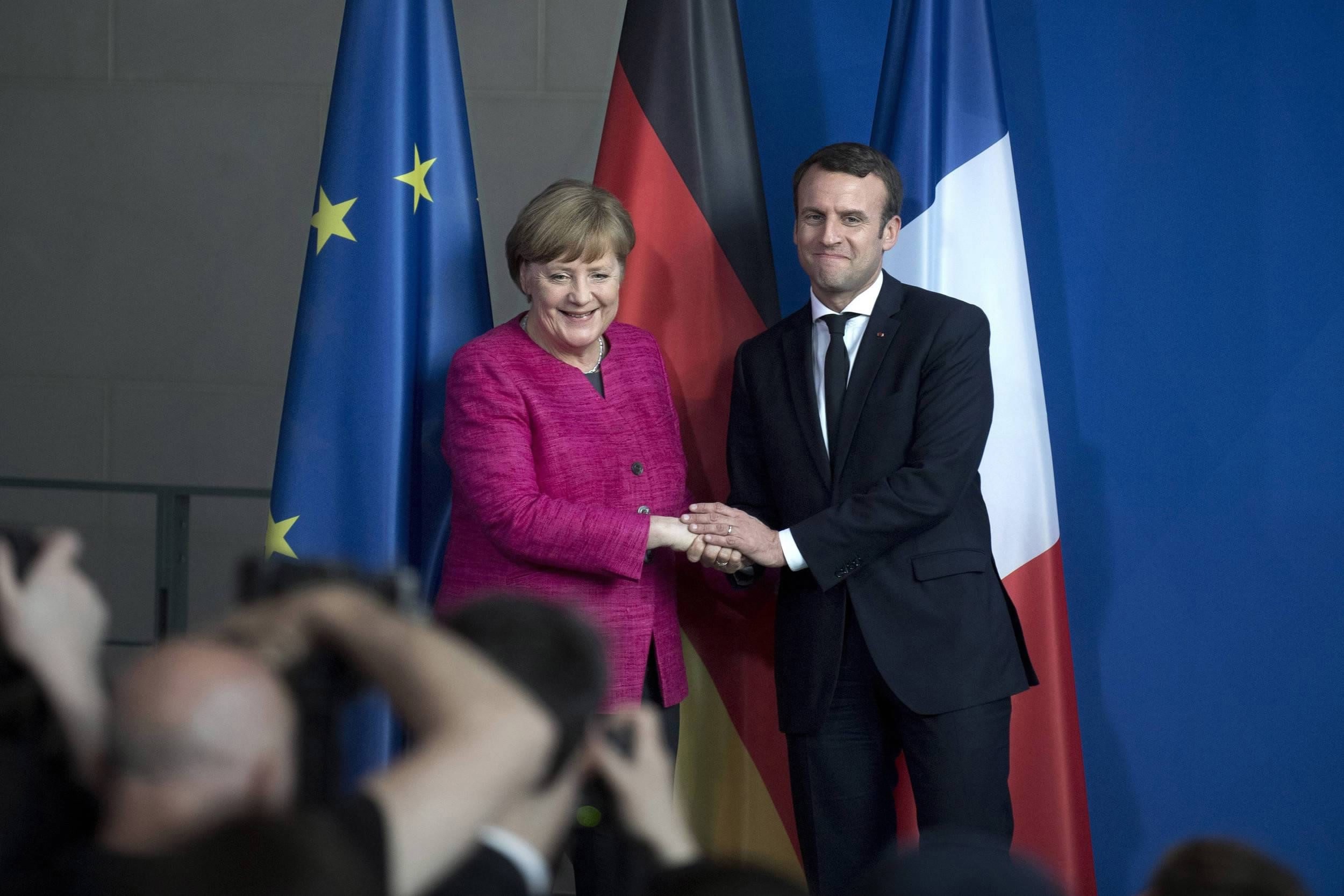
Angela Merkel and Emmanuel Macron shake hands during a press conference at the Chancellery in Berlin, Germany on May 15, 2017. /VCG Photo
Angela Merkel and Emmanuel Macron shake hands during a press conference at the Chancellery in Berlin, Germany on May 15, 2017. /VCG Photo
It seems that the only negative aspect of Sunday's election will be the entrance of the xenophobic and populist Alternative for Germany Party (AFD) in the Bundestag. This will be the first time AFD will be elected, says Philipp Sälhoff, and "it will be interesting to see how it will deal with political reality and how other parties will shape their respective agendas."
For Carmen Gerstenmeyer, "changes will principally touch upon discourse instead of the Bundestag functioning." It should be mentioned that, if a new grand coalition is formed, the AFD might evolve into the main opposition, being the third largest party in six-party parliament instead of the current four-party one.
(This piece was originally published on China.org.cn. The author is a columnist with China.org.cn. The article reflects the author's opinion, and not necessarily the views of CGTN.)
Source(s): China.org.cn

SITEMAP
Copyright © 2018 CGTN. Beijing ICP prepared NO.16065310-3
Copyright © 2018 CGTN. Beijing ICP prepared NO.16065310-3